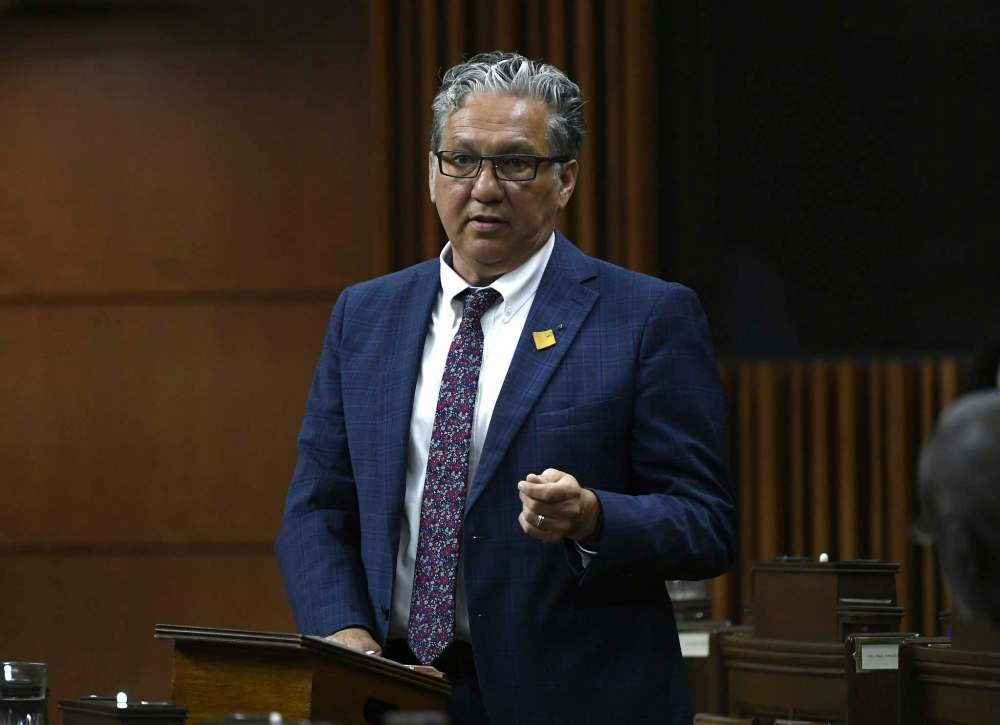Ottawa makes push for shovel-ready social-distancing projects
Advertisement
Read this article for free:
or
Already have an account? Log in here »
To continue reading, please subscribe:
Monthly Digital Subscription
$19 $0 for the first 4 weeks*
- Enjoy unlimited reading on winnipegfreepress.com
- Read the E-Edition, our digital replica newspaper
- Access News Break, our award-winning app
- Play interactive puzzles
*No charge for 4 weeks then billed as $19 every four weeks (new subscribers and qualified returning subscribers only). Cancel anytime.
Read unlimited articles for free today:
or
Already have an account? Log in here »
Hey there, time traveller!
This article was published 04/08/2020 (1359 days ago), so information in it may no longer be current.
OTTAWA — The federal government is rejigging its massive infrastructure plan, allowing provinces to divert 10 per cent of their federal dollars into shovel-ready projects aimed at helping people physically distance.
That could mean finally flowing up to $117 million designated for Manitoba but gummed up in red tape, creating bike lanes, hospital extensions and retrofitted classrooms.
“Once we get on the other side of COVID… infrastructure’s going to be a way to rebuild our cities, our rural areas and the North,” said Dan Vandal, Manitoba’s sole federal cabinet minister.

The Manitoba government said it will study the proposal and see if it can help clear obstacles to getting infrastructure funds out the door.
The Investing in Canada Infrastructure Program (ICIP) has been plagued with issues since Manitoba signed onto its quota in 2018.
The decade-long plan aims to repair Canada’s crumbling roads and outdated buildings, such as recreation centres. ICIP splits projects into four streams, such as green, rural and public transit — and largely requires provinces to cost-match projects.
Numerous provinces complain the criteria behind those streams make it hard to get projects through the federal approval process.
The Liberals have partially acknowledged that problem, while insisting provinces aren’t putting up enough cash to qualify.
Winnipeg’s city council has previously shelved projects it nominated for the plan, after the belt-tightening provincial PCs put up less funding than the city wanted.
On Wednesday, the federal Liberals announced provinces can now divert 10 per cent of their federal ICIP cash into shovel-ready projects, targeted at making life easier during the COVID-19 pandemic.
Infrastructure Minister Catherine McKenna told reporters even mobile-phone and broadband projects could qualify under the funding.
“We’re using existing money to make sure that we’re getting better outcomes,” she said. “This is for projects that can be built quickly.”
The reappropriated funding is intended for projects for which construction would actually start by fall 2021 and be completed by the end of that year.
The federal government could also form more direct partnerships with cities, which municipalities have sought for years.
Instead of the usual formula of Ottawa and the province each covering 40 per cent of costs and leaving the city to pay the remaining 20 per cent, these COVID-19 projects could have Ottawa pay four-fifths of the cost without provinces contributing a dime.

However, those projects would still require a provincial sign-off.
Manitoba Central Services Minister Reg Helwer seemed open to green-lighting such projects, saying the PCs want job-stimulating projects in cities and First Nations, while allowing the province to afford essential services.
“We’re going to make it work best for Manitoba and we are in very active negotiations with the federal government,” Helwer said in an interview. He did not provide examples of any particular projects the PCs might prioritize.
Vandal said the money can be used for anything from walking and cycling routes in Winnipeg to medical research facilities. As an example, he cited the St. Boniface Hospital Foundation, which sits in his riding.
“Many of our hospitals need some investment, so I’m hoping we can use some of these funds to do some important work in our hospitals, as well as our schools,” Vandal said.
Winnipeg Mayor Brian Bowman was not aware of the arrangement before its announcement; his office said it would seek clarity.
Helwer said he’d still prefer the Liberals do away with their streamed criteria for projects, but hoped Wednesday’s new program will clear a logjam and make more projects eligible.
“Anything would help,” he said. “All provinces are struggling with finding a way to fit their projects into the (federal) streams.”
dylan.robertson@freepress.mb.ca


